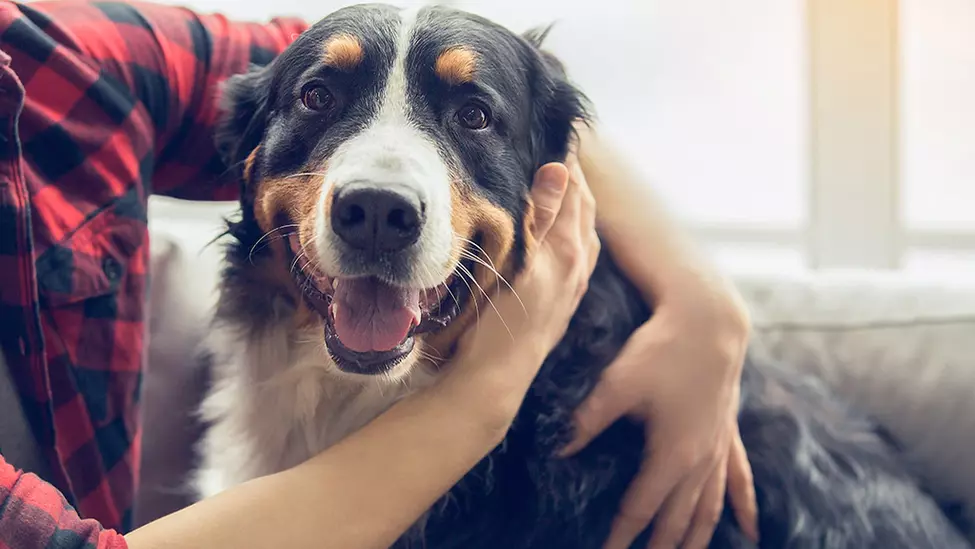How to Tell if Your Dog Is Sick


For many pet owners, dogs are faithful companions and an important part of their lives. Unfortunately, dogs can’t tell us when they aren’t feeling well. However, there are some common canine behaviors that may indicate your dog needs extra care or medical attention.
Dog sickness symptoms to watch for
While our dogs can’t say how they feel, they communicate in other ways. Every dog is different, and while this list is by no means comprehensive, here are some common signs that your dog could be sick and may need veterinary attention:
1. Extreme weight loss or gain
If your dog shows signs of rapid weight loss despite eating a regular diet, it may be a sign of trouble. The cause might be as simple as sore gums that are making it painful for your dog to eat, but weight loss also could be a sign of something more serious such as difficulty digesting food, diabetes, infection or cancer. If your dog is gaining too much weight, it may simply be due to overeating and not enough exercise, or there might be a medical cause such as hypothyroidism.
2. Trouble with elimination
Once your dog is housebroken, watch for setbacks that could be an indication of poor health. For example, if your dog suddenly starts having accidents in the house, needs to be let outside more frequently than usual, or has trouble urinating or defecating, it could be a sign of declining health. While some changes in elimination are a normal part of aging, others can be signs of medical conditions like kidney disease, Cushing’s disease or kidney stones.
3. Sudden loss of appetite
If your dog starts ignoring his food bowl or turns up his nose at a treat, it may be for several reasons. You dog may lose his appetite if he’s eaten something he shouldn’t have, but keep an eye on him. If your dog doesn’t get his appetite back after 24 hours, consider contacting your veterinarian. It could be a sign of something more serious like dental problems, illness or an infection.
4. Decreased energy
It’s perfectly normal if your dog takes a long nap after an extra-long walk around the neighborhood. But if you notice lethargy over a few days or other signs of unusual lack of energy such as weakness or a change in tolerating regular exercise, consider making an appointment with your vet for a checkup. It could mean an infection, parasites, heart or liver problems, or diabetes.
5. Stiffness or lameness
Just like humans, dogs can suffer joint and muscle pain that causes them to have trouble rising or walking. Prolonged symptoms may indicate arthritis, ligament problems, tick-borne diseases or hip dysplasia. These conditions are treatable, so consult your vet for an accurate diagnosis and treatment plan.
6. Excessive thirst and frequent urination
If your dog is drinking excessive amounts of water and doesn’t stop after 24 hours, that may be a warning sign. Excessive drinking, or polydipsia, may be a sign that your dog is dehydrated and needs electrolytes. Your dog could also be having a bad reaction to certain medicines or dealing with kidney issues, liver failure or a hormone disorder.
7. Flaky or itchy skin
If you notice your dog scratches or licks his skin more frequently than usual, it may be a sign of a skin condition. Common skin conditions can include reactions to medication, bites from fleas or mites, or something in the environment, along with skin allergies and dermatitis. If the itching persists, talk to your vet.
8. Change in personality
You know your dog. If he seems unusually irritable, listless or unwell, take a closer look. Dogs, like humans, may be sick even if there are no apparent symptoms.
Is your dog sick? Here’s what to do
In many cases, your dog’s symptoms will go away within a day. But if your dog shows discomfort or other symptoms that last more than 24 hours, you’ll want to get him to the vet for a checkup. A visit to the veterinarian can be expensive, but like people, dogs sometimes need medical care to keep a problem from getting worse. Did you know you can buy pet insurance to help cover veterinary expenses?
Looking for ways to manage the cost of your vet bills? Learn more about Pet Insurance.
Source
1 https://www.aspcapetinsurance.com/resources/common-dog-diseases/



